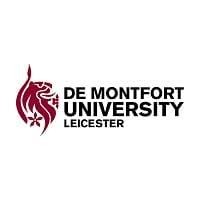Course Content
In semester one you will study the following two modules:
- Advanced Molecular Biology and Genomics – This module consolidates advanced knowledge of principles, established and emerging diagnostic techniques in molecular biology and their applications in various biomedical disciplines. The molecular diagnosis of both infectious and non-infectious diseases are explored. Students study molecular diagnosis in various stages: prenatal, disease predisposition, disease detection, disease monitoring and personalized medicine. Quality control and management in molecular diagnostics laboratories are also discussed.
- Advanced Pathobiology and Diagnostics - This module aims to consolidate and deepen students’ understanding and evaluation of current practice, research, diagnosis and emerging technologies in pathobiology in the main Biomedical Science disciplines, including blood sciences, biochemistry, microbiology, immunology, cellular sciences. Students develop critical analysis and appraisal of existing and emerging diagnostic technologies and research. Students will also have the opportunity to further advance their research, enquiry and analytical skills in a practical workshop.
In semester two you will study the following two modules:
- Advanced Research Methods and Biomedical Techniques – This module is designed to enhance students’ skills in research methods as well as to provide an advanced understanding and practice of current techniques used in Biomedical Science laboratories. Lectures will give an overview of research methods and techniques commonly used in Biomedical Science that students will then gain hands on experience with. By the end of the module, students will be able to carry out specialist biomedical science techniques competently, analyse data and critically present and interpret laboratory results.
- Advanced Biomedical Science Specialisms – This module is designed to provide an advanced level of knowledge and understanding of specialisms of Biomedical Science: Leadership & Quality Management, Nutrition & Public Health, Applied Biotechnology and Cancer Biology. Students will develop a critical awareness of these subject areas and be able to exercise an independent and scientifically justified opinion. Students will choose three out of four specialism assessments to complete and submit. Students will have the opportunity to further advance their knowledge and critical analysis skills in a workshop.
-
Leadership & Quality Management - Describes the application of quality management, leadership and project management in healthcare to ensure effective patient and healthcare service outcomes. Leadership and Quality Management principles are fundamental to the delivery of safe, cost-effective and fit for purpose healthcare based on clinical excellence.
-
Nutrition & Public Health - Designed to debate current concepts, controversies and latest methodological advances in the fields of nutrition and public health. Research in these subject areas will be used to illustrate current challenges, developments and their importance and role in improving future diagnostic practice and disease management.
- Applied Biotechnology - Designed to critically evaluate and interpret current concepts, controversies and latest methodological advances in biotechnology. Studies in a selected number of subject areas will be used to illustrate current challenges and developments in biotechnology.
- Cancer Biology - Appraises the processes that underlie tumourigenesis, with a focus on the molecular & biochemical basis, causes and diagnosis of cancer.
-
In semester three you will complete the following:
-
Postgraduate Research Project - This module provides students with the opportunity to design, execute and report upon a laboratory-based scientific project. It is essentially a student-centred and student-directed project. Students will be able to work safely and independently in a laboratory environment.








